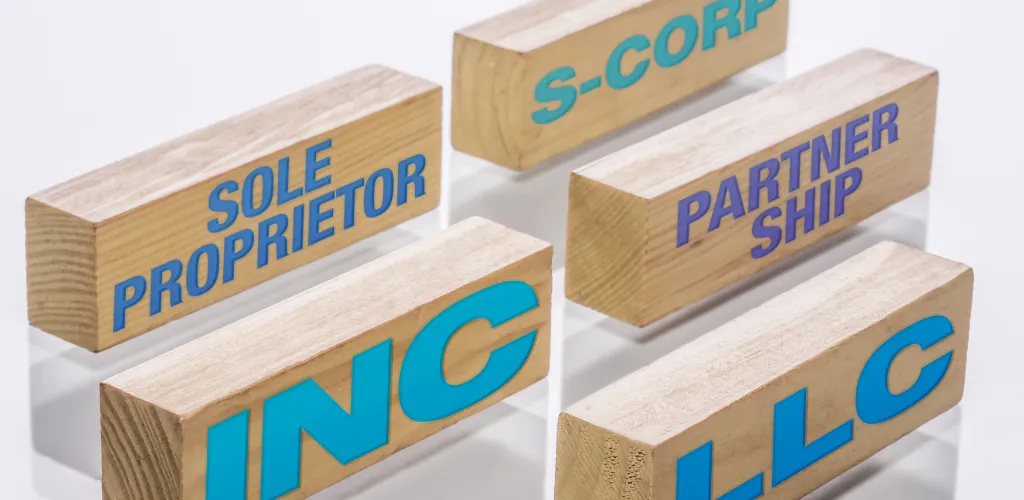Blog
Resources and Information to Help Your Business

The Benefits of Choosing an S-Corp over LLC or Sole Proprietorship in Idaho
Starting a business in Idaho? Congratulations! It's a wonderful place to bring your entrepreneurial dreams to life. But before you dive in, you need to choose the right legal structure for your business. You've probably heard of LLCs and sole proprietorships, but have you considered an S-Corporation (S-Corp)? In this blog post, we'll walk you through the benefits of creating an S-Corp in Idaho compared to being an LLC or a sole proprietor.
Already started business and created an LLC? No worries! We will also explore how you can keep your LLC but still get the tax advantages of an S-Corp.
1. Limited Liability Protection
Let's start with the basics: limited liability. This is one of the key advantages of forming any business entity, including an S-Corp or LLC. When you form an S-Corp or LLC, your personal assets (like your home or savings) are protected from business debts and lawsuits. This means that if your business faces financial trouble or gets sued, your personal assets generally can't be used to cover those expenses.
Sole proprietors, on the other hand, don't enjoy this same protection. Your personal assets are at risk if your business encounters financial difficulties or legal issues. If you're concerned about protecting your personal assets, forming an S-Corp or LLC is a smart move.
2. Tax Advantages
Now, let's talk taxes. One of the major perks of an S-Corp is the potential tax savings it can offer. Unlike a traditional C-Corporation, which is subject to double taxation, an S-Corp passes its income, deductions, and credits through to its shareholders. This means that your business's profits are only taxed at the individual shareholder level, helping you avoid that double tax hit.
For LLCs and sole proprietors, business income is typically reported on the owner's personal tax return. While this can simplify tax reporting, it doesn't offer the same potential for tax savings that an S-Corp can provide.
You might be asking, so how does this save me on taxes? When you take a "reasonable salary", you will pay the 15.3% on that salary up to the social security maximum of $160,200 (for 2023 - it adjusts yearly based on inflation). Any additional money the owner of the S-corp pulls out of the company is not subject to the self-employment taxes.
3. Flexibility in Profit Distribution
S-Corps offer flexibility when it comes to profit distribution. This can be especially advantageous if you have multiple shareholders and want to distribute profits in a way that suits your business goals and tax situation. In an S-Corp, profits can be allocated differently among shareholders based on their ownership percentages.
In contrast, LLCs and sole proprietorships often have fewer options for profit distribution. The profits are typically allocated based on the ownership percentage, which may not be as flexible as an S-Corp's options.
4. Enhanced Credibility
Perception matters in business, and having the "Inc." or "Corp." designation in your business name can lend an air of professionalism and credibility. While an LLC offers limited liability protection, an S-Corp can provide an extra layer of prestige. This can be especially beneficial when dealing with clients, partners, or investors who may feel more confident working with a formal corporation.
5. Ease of Raising Capital
If you plan to raise capital through investors or by selling shares in your company, an S-Corp structure can be more appealing. S-Corps have the flexibility to issue different classes of stock, which can make it easier to attract investors with various interests and expectations.
LLCs and sole proprietorships may find it more challenging to attract outside investment, as they typically don't have the same stock issuance options as an S-Corp.
6. Retirement and Fringe Benefits
S-Corp owners can often take advantage of more favorable retirement and fringe benefits compared to sole proprietors or LLC owners. With an S-Corp, you may be able to set up retirement plans, such as a 401(k) or pension plan, and offer tax-advantaged fringe benefits like health insurance to yourself and your employees.
Sole proprietors and LLC owners can still access these benefits, but the rules and tax implications may differ, potentially making it less advantageous. Speak to your finance professional about these options.
7. Ease of Transferring Ownership
Transferring ownership or selling your business can be more straightforward with an S-Corp. You can easily transfer shares of an S-Corp to new owners, allowing for a smooth transition of ownership. In contrast, transferring an interest in an LLC or sole proprietorship can be more complex and may require additional legal and tax considerations.
What if you have already formed an LLC or other legal entity? Talk with your attorney, tax professional (we can help with that!) and research Form 2553 with the IRS to elect an S-Corp for tax purposes.
You'll want professional guidance to get the most out of your S-Corp. Proactive and year-long guidance is necessary. Want more information? Click here to schedule a free diagnostic evaluation to see if an S-crop makes sense for you.
Partner With Us Today!
Schedule a 30 minute, no cost, no commitment consultation today. Let's see if it makes sense to work together.
DISCOVER the 10 BIGGEST Financial Mistakes Contractors Make and What You Can Do to Fix Them Today

© Copyright 2022. Savvy Tax Strategies and Bookkeeping.
All rights reserved.
2023 All Rights Reserved.






